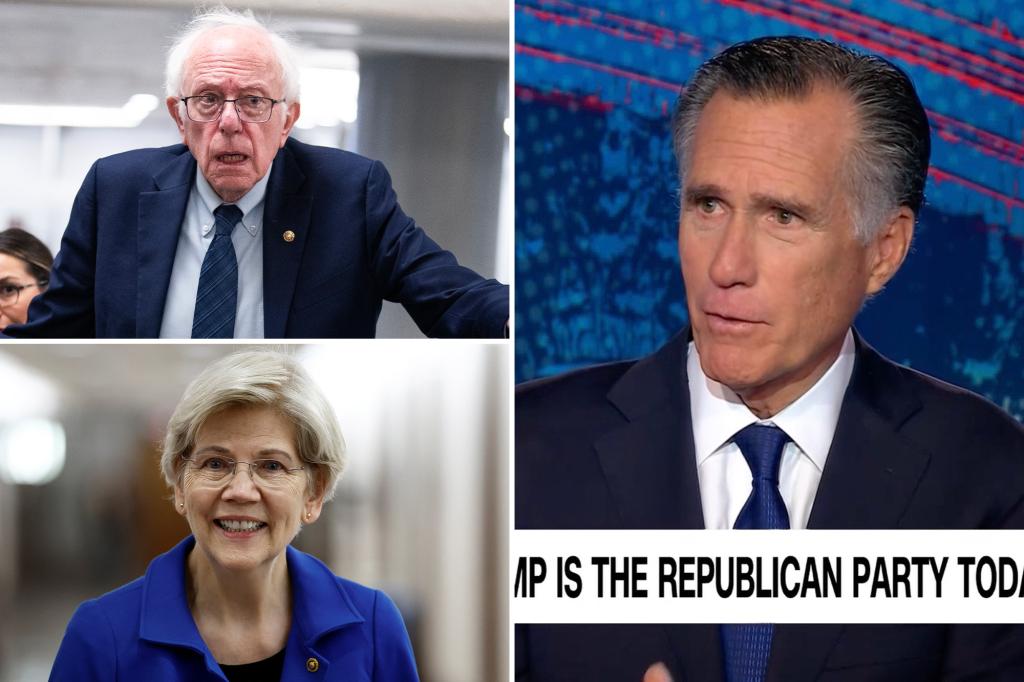Senator Mitt Romney, in his concluding remarks as a retiring senator, delivered a scathing critique of the Democratic Party, attributing its declining working-class support to the influence of progressive figures like Bernie Sanders and Elizabeth Warren. He argued that policies such as “defund the police” and the inclusion of transgender athletes in women’s sports alienated traditional working-class voters, driving them towards the Republican Party. Romney credited Donald Trump’s presidency with reshaping the GOP into the party of the working class, evidenced by Trump’s unprecedented success in securing the popular vote and garnering significant support from minority voters. This shift, according to Romney, necessitates a recalibration of policies within both parties to align with their evolving voter bases. He predicted a period of introspection and adjustment for both Democrats and Republicans as they navigate the changing political landscape.
Romney’s assessment painted a bleak picture for the Democratic Party, suggesting they face an uphill battle to recover their lost base. He characterized the party as increasingly disconnected from the concerns of working-class Americans, portrayed as being more aligned with the interests of academics and “woke scolds” than with union members and blue-collar workers. This perception, he argued, contributed to Trump’s electoral success, as the former president effectively capitalized on the Democrats’ misreading of the national mood and the anxieties of the working class. Romney acknowledged the magnitude of Trump’s victory, recognizing it as a mandate from the American people. Despite being a vocal critic of Trump’s policies and rhetoric, Romney conceded that the former president had clearly articulated his intentions during the campaign, and his subsequent actions were consistent with those promises.
While acknowledging Trump’s electoral triumph, Romney also offered a nuanced perspective on the former president’s legacy. He predicted that history might not judge Trump favorably, particularly regarding his actions leading up to the January 6th Capitol riot. Despite Trump’s electoral victory, Romney suggested that scholars and historians would likely view the events of January 6th as an abuse of power and a criminal act. This distinction between political victory and historical judgment underscores Romney’s belief that Trump’s actions, while resonating with a significant portion of the electorate, ultimately undermined democratic principles and norms.
Romney also addressed Kamala Harris’s campaign strategy, noting her shift away from more progressive positions she held during the 2020 election cycle. Harris’s attempts to court Republican voters by highlighting endorsements from figures like Liz Cheney ultimately proved unsuccessful, as Trump swept all seven battleground states. This, according to Romney, further reinforced the Democratic Party’s miscalculation of the electorate’s prevailing sentiment. He suggested that Harris’s attempts to moderate her stance were perceived as insincere and failed to resonate with voters who were seeking authentic leadership and clear policy positions.
Furthermore, Romney acknowledged the dominance of the MAGA movement within the Republican Party, predicting that figures like J.D. Vance were likely to emerge as future leaders. While he refrained from disclosing his own voting choices, he emphasized his desire to maintain influence within the party, despite his past criticisms of Trump. This careful positioning suggests Romney’s recognition of the evolving power dynamics within the GOP and his intent to remain a relevant voice in shaping the party’s future direction.
Finally, reflecting on his own legacy, Romney expressed humility, suggesting that he would not be remembered prominently in the annals of history. He emphasized his commitment to his principles and his desire to be remembered by his family as a man of integrity who stood up for his beliefs and served his country with honor. This personal reflection revealed a more introspective side of the often-outspoken senator, highlighting his values and his desire to leave behind a legacy of principled leadership, even if it meant standing against the prevailing political tides.

